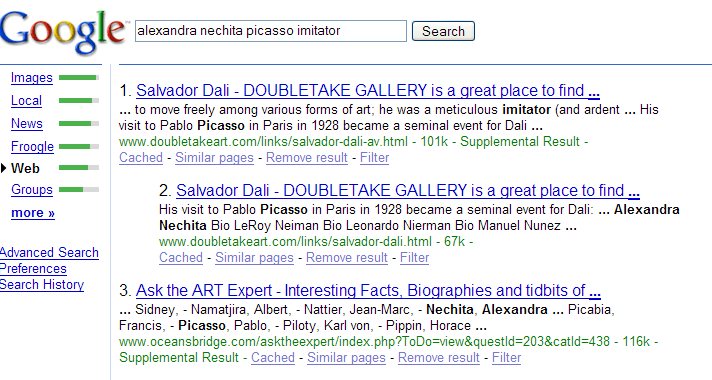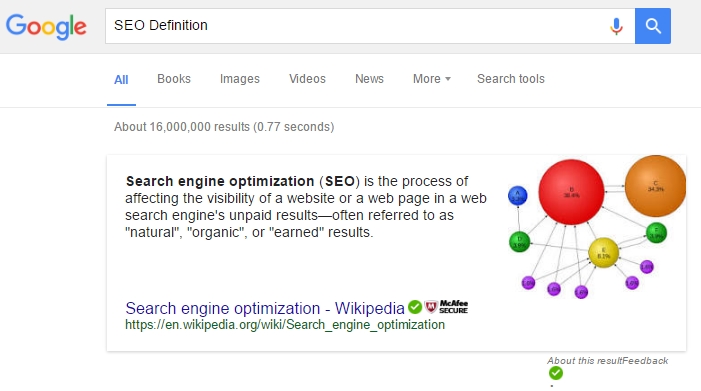Throwback: Eight of the Greatest Changes in SEO in the Past Ten Years
In terms of progress, SEO is one of the most influential marketing channels in the world. The reason being is that SEO is one of most progressive fields in terms of innovation and updates. Google regularly makes changes to their algorithm to make SEO more rewarding for website owners or to weed out the black hat SEO practitioners. The fact of the matter is that 10 years ago, SEO was a very different game but the players are still the same.
Google solidified its position as THE authority in SEO around 10 years ago during the early 2000s so let’s take a look at how it has changed through the years and ask ourselves: Are the changes good and can are these changes still applicable today? Let’s find out.
Empowering Content
One of the most notorious periods of time in SEO was around the mid-2000s when keyword stuffing and spammy content dominated the world of SEO. Technically this wasn’t a bad thing because there wasn’t anything Google could really use to dissuade people from keyword stuffing. It wasn’t until the Panda update of 2011 when Google finally said no to keyword stuffing giving rise to meaningful quality content.
Panda basically made the internet a better place by penalizing keyword stuffing. Basically speaking, before the Panda update the internet was all about quantity over quality which gave birth to a number of low quality content. Panda instead rewarded those who spent time polishing their craft in terms of writing quality content. Search Engine Optimization became a game of content and people who can dish out the best content are the real winners of the game – and this is still significant today.
Getting rid of link schemes
Link scheme is a broad term but Google basically sees any attempt to manipulate your ranking or influence using links is a no-no. Link building in the early 2000s was quite tumultuous due to the fact that many of the things we see today as Black Hat SEO techniques were more or less tolerated back then. During the late 2000s, Google stepped up its game and innovated with link building guidelines that we still use today. Basically speaking, link building is now restricted to natural link attraction as well as legitimate guest posts and only by doing this can you increase your authority.
Redefining local searches
Back in 2014, the Pigeon update came about and it revolutionized how local searches were done forever. The Pigeon update basically rewarded well-optimized websites and gave them an advantage when it comes to local searches. Another good thing that came about because of this update was Google integrating traditional web ranking signals with its internal algorithm and it worked well with local searches.
Redefining local searches also gave rise to location-specific searching with the help of the prevalence of mobile browsing.
Changing up SERP
SERP is one of the chameleons in SEO in that it has changed so many times that many people have already lost count. Many of these changes are small but the biggest changes are definitely noticeable.

(Source: https://goo.gl/Q8lqLo)
Just take a look at this screenshot from Google’s SERP from the 2006. It’s definitely strange to look at today because Google’s SERP has changed so much – and for the better. Google is now faster, more optimized and it prioritizes quality content and websites that have a positive reputation.
Google’s Knowledge Graph
We all know that Google’s Knowledge Graph is great but it didn’t even exist back then. The knowledge graph tries to give searchers a clear answer to their search terms. This is definitely aimed towards the user base because it takes priority over organic search results.
Optimizers had to adjust to these changes by compensating with more concise content that are not generally answerable keywords. My opinion on this is that this is good because I believe that it allows optimizers to hone their craft by creating content that directly answers their users’ needs.
Mobile Only
Mobile Devices have been the next big thing for the longest time that it’s great that Google finally made the change to mobile first. Google has always pushed for innovation in mobile search to the point that Google is enforcing optimization for mobile devices. Optimizers that have yet to make their websites mobile-friendly should do so as soon as possible because Google actually rewards mobile-friendly websites.
Killing keywords, again
Panda and Penguin are two of the most recurring updates and for good reason and these updates effectively killed keyword stuffing back then. Hummingbird, on the other hand is a more recent update that introduced users and optimizers to semantic search which essentially allows Google’s algorithm to interpret user-intent instead of relying on keywords. What this means is that Hummingbird allowed Google to understand what people want instead of relying on words that can still be potentially exploited.
On the other hand, keywords are still important but do note that SEO is no longer focused on keywords and so, keyword-centric optimization is no longer the same game. Keywords are significant in enabling websites to map out their strategic focal point as well as giving you opportunities to rank.
Updates, Updates and more Updates
During the past couple of years, Google has released updates such as Panda, Penguin and Hummingbird. These changes kept optimizers on their toes and for a time, people were significantly worried about upcoming changes and how these can affect their websites. Back then, any single update could recalibrate how rankings are calculated and these “small updates” can potentially make or break a website. These constant updates, in my opinion, forged SEO practitioners into the powerhouses that they are today by keeping them on their toes. In short, these changes made optimizers a little bit paranoid which forced them to optimize their websites frequently – and I think that’s a good thing.
Key Takeaway
Google has definitely grown and it is nigh unrecognizable from what it was ten years ago. I wrote this article to look back upon all of the changes and I realized that these changes are definitely still significant today. These changes made SEO better until it reached its current form. Am I saying that SEO is perfect now? Definitely, the answer is no. While SEO now has a strong foundation, it can still be improved.
Did you learn anything new from Google’s past? Did this article make you miss the past? Let’s discuss your thoughts in the comments below.


